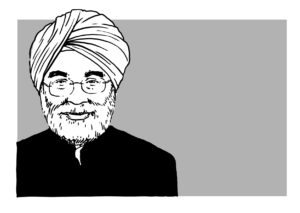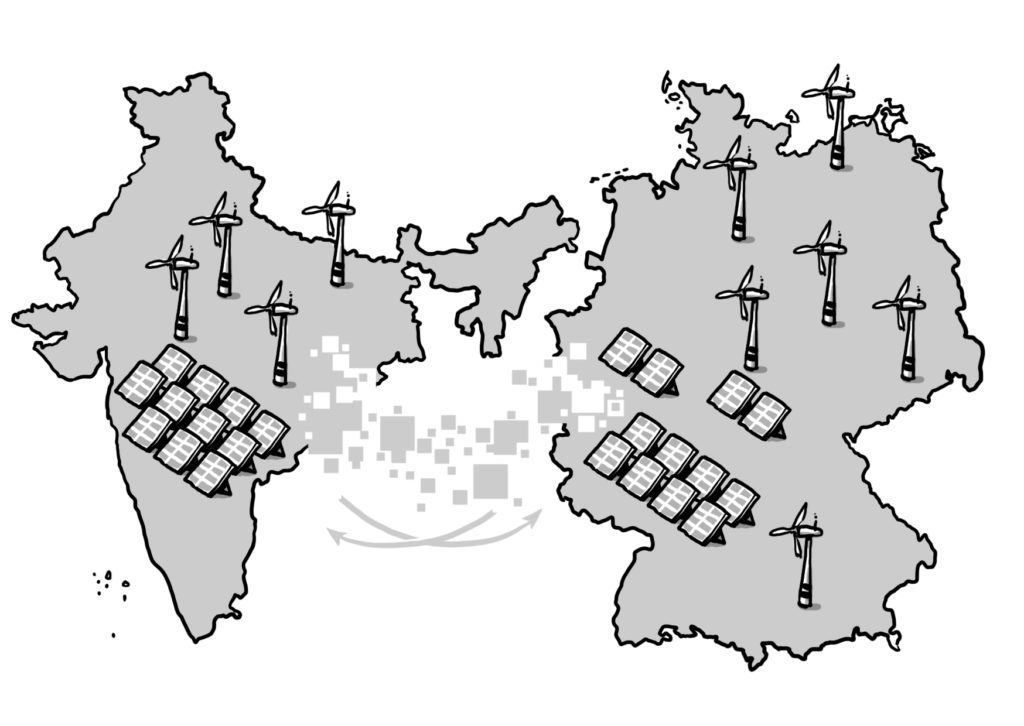Last month, as the International Relations Club organised the first event of its Ambassador Series, Executive Editor Nathan Appleman sat down with His Excellency Mr. Gurjit Singh to discuss politics, energy, and structural domestic reforms in India.
You have been the Indian Ambassador to Berlin since January 2016. How have you seen German- Indian relations develop during over the course of this year?
In 2015, we saw a great deal of advancement in German-Indian relations. For one, Angela Merkel and Narendra Modi met twice, in April and in October, excluding multilateral conferences. During this time, several agreements were reached, not only on trade and investment, but also on issues related to energy or even security. In comparison, 2016 is the year of implementation and confirmation. The task is now to ensure that deals struck last year can achieve their stated aims efficiently and fairly, and can foster tighter economic and political cooperation between our two countries in the long run.
On top of ratifying the Paris Climate Change Agreement this October, India has also set very ambitious energy and climate targets for itself. In your mind, what are the necessary domestic policies that should be adopted for reaching those goals?
Indeed, India has defined very ambitious INDCs for itself, including a renewable energy target of 40% by 2030. The government has pledged 175GW of newly installed renewable energy capacities between 2015 and 2022, 100 Gigawatts of which would be going to solar alone. We are confident in reaching those goals – but they also need to be complemented with measures on the international scene.
Since the COP in Paris, India has been one of the leading partners along with France in the International Solar Alliance, a coalition of sun-rich countries located between both Tropics who seek to massively ramp up solar energy. This coalition can become a great driver for fostering innovation, investment, and capacity building in solar energy programmes across developing sun-rich countries.
Germany is also a major actor in the renewable energy sector and has already invested substantively in India’s green portfolio- how do you see energy cooperation evolving between the two countries?
Germany is one of India’s largest partners when it comes to renewable energy, and cooperation between both countries is key for achieving not only both countries’ respective goals, but also to push global action for climate mitigation in the right direction. Although the Indian economy is still heavily reliant on coal for its development at the moment, several policies have been put in place to ensure that future economic expansion is paired with growth in the renewable sector, while at the same time pushing for a substantial improvement of current coal power plants. Germany’s role in this effort is essential.
One particular project that comes to mind is India’s Green Energy Corridor which will integrate the growing renewable energy production into the national grid. Besides offering financial assistance of over a billion euros, Germany is also actively taking part in several pilot projects that aim to inform this gigantic initiative, which requires network and transmission extension and modernization. It is this type of cooperation, relying on the exchange of advice, expertise, and experience which will matter the most in the end.
The “Make in India” campaign has received a lot of attention. What are the main challenges for promoting labour-intensive manufacturing? What role can Germany play in building a manufacturing industry in India?
The main purpose of “Make in India” is to improve the atmosphere for businesses and investors, both local and international, in the manufacturing sector. As you know, India has a formidable services sector, which we are very proud of. What we would like is to also develop our manufacturing sector into another strong driver of the Indian economy. In order to achieve this, there are two particularly important things that require our attention, namely skill development and manufacturing infrastructure improvement. Concerning the former, we are foremost concerned with making industry jobs more attractive for young Indian men and women. This is something that I believe we can learn from the German apprenticeship system and adapt to our own needs.
There are also other ways in which our two economies can collaborate, such as the ‘Make in India Mittelstand’ (MIIM) initiative, which is supported both by the Indian and German governments. The MIIM offers a wide range of investment support services for German SMEs, including strategy consulting, M&A advice, operational market entry support, tax & legal support, financial services, technology collaboration, and facilitation of bureaucratic processes. Furthermore, the initiative has already announced a €500 Million investment in India, in large part thanks to the support of the German business community.
Can you explain the newly proposed goods and services tax (GST) and how it will improve the ease of doing business in India?
The introduction of the GST bill (effective in April 2017) stems from a very simple observation. In India, each of the twenty-nine states has a different sales tax. This causes issues for consumers, for producers, but also for investors, whether Indian or foreign. The GST therefore proposes to merge all regional indirect taxes on consumption into a single one that covers all sectors of the economy and is applied nationwide. Of course, there are incredible differences across all federal states, which means that the central government also had to accommodate for different interests across these regions. This is in part why three distinct tax categories have been defined, each of which encompasses a number of goods and services. Furthermore, a compensation system for States who will lose out in the first few years following the GST ensures that the transition is as smooth and fair as possible.
Editor’s note: Our thanks go to the Hertie IR Club and to the Indian Embassy in Berlin.

Mr. Gurjit Singh is currently the Indian Ambassador to Germany, with previous postings in Japan, Kenya, Italy, Indonesia and Ethiopia. He has also extensively worked on strengthening ties between India and the African Union.
Nathan Appleman is Executive Editor of the Governance Post and currently on leave as a Research Assistant at the German Institute for Economic Research in Berlin.

